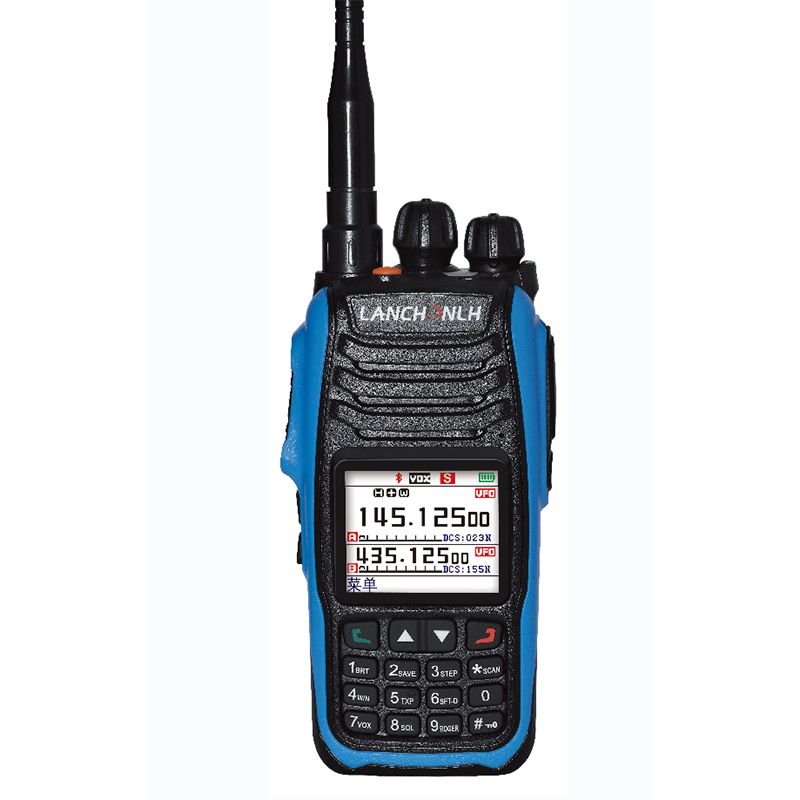What Makes Analog Radio Walkie Talkies Still Relevant in Today's Digital World?
2024-12-30
In a world where smartphones, digital communication tools, and the latest technologies dominate, it might seem like the traditional analog radio walkie talkie has been left behind. However, these classic devices continue to play an essential role in various industries and everyday situations. But why, in an age of digital advancements, do analog radio walkie talkies still have so much relevance? In this blog, we will dive into why these devices remain indispensable in certain settings and explore their enduring appeal.
What Is an Analog Radio Walkie Talkie?
An analog radio walkie talkie is a two-way radio communication device that uses analog signals to transmit and receive voice messages over short distances. Unlike their digital counterparts, which rely on advanced algorithms and software for communication, analog radios work by converting sound into electrical signals that are sent over radio frequencies. These signals are typically less complex and more direct than digital signals, but they have the advantage of being simpler, easier to use, and often more reliable in specific contexts.
Why Are Analog Radio Walkie Talkies Still Relevant?
Despite the rise of digital communication technologies, analog radio walkie talkies continue to be widely used, and for good reason. Here are some of the key benefits that ensure their continued relevance:
1. Simplicity and Reliability
One of the primary reasons that analog radio walkie talkies remain in use is their simplicity. Unlike digital devices, which can sometimes involve complex setups and configurations, analog radios are easy to use with minimal technical knowledge. Users simply turn on the device, select the correct frequency, and start communicating. This ease of use makes them an ideal choice in emergency situations or environments where quick, hassle-free communication is essential.
Moreover, analog radios are incredibly reliable. In challenging conditions—like extreme weather, remote locations, or during power outages—analog devices can perform more consistently than their digital counterparts. Without the need for advanced power sources, software updates, or internet connectivity, analog radios can often provide clear communication when it’s needed most.
2. Durability in Harsh Environments
Many industries, including construction, security, and outdoor adventure, operate in environments where the conditions are rough and unpredictable. Analog radio walkie talkies are known for their durability and ruggedness, making them a popular choice for fieldwork in harsh conditions. Their sturdy design and resistance to water, dust, and shock allow them to perform in situations where smartphones or other communication devices might fail.
3. No Need for Infrastructure
Another advantage of analog radios is that they do not rely on any existing infrastructure such as cellular towers, Wi-Fi networks, or satellites. Communication between devices is direct, making them ideal for situations where network coverage is limited or unavailable. This makes analog radios particularly useful in remote areas, during outdoor expeditions, or in disaster recovery scenarios when other communication methods may not be accessible.
4. Cost-Effective
Compared to modern digital radios and smartphones, analog radio walkie talkies are often much more affordable. The low cost of the devices themselves, as well as the lack of ongoing data or subscription fees, makes analog radios a budget-friendly option for individuals and businesses alike. For companies with large fleets of workers or teams that need a cost-effective communication solution, analog radios provide an accessible and economical choice.
5. Battery Efficiency
Analog radios are typically more power-efficient than their digital counterparts. Since analog radios use less energy to transmit and receive signals, they can often last longer on a single battery charge. This is especially important in long shifts or during remote operations, where access to charging facilities may be limited.
6. Broad Frequency Range
Analog walkie talkies are available in a variety of frequency ranges, allowing users to pick the most suitable channel for their needs. Whether you're operating within a local network or across a larger geographical area, analog radios can easily accommodate different communication needs. The versatility of frequency options also helps to avoid interference from other radio signals, ensuring clearer communication in busy environments.
Where Are Analog Radio Walkie Talkies Commonly Used?
Despite the advancements in communication technologies, analog radio walkie talkies remain essential in many sectors:
- Construction and Industrial Sites: In these environments, clear communication between workers, supervisors, and safety teams is vital. Analog radios allow for instant communication without relying on cellular networks, making them ideal for large sites or remote work locations.
- Security Services: Security personnel often rely on analog radios to maintain constant communication while patrolling. The simplicity and reliability of these devices ensure that guards can quickly reach their team when needed.
- Outdoor Adventures and Hiking: For adventurers, campers, and hikers, analog radios are an essential part of safety gear. They allow groups to stay connected over long distances in areas where cell phone signals are weak or non-existent.
- Emergency Response: In critical situations, such as natural disasters or search-and-rescue operations, analog radio walkie talkies provide a reliable backup when other communication networks may be down.
- Public Safety and Law Enforcement: Police officers, firefighters, and paramedics often use analog radios for direct communication in the field, as they provide a quick, simple, and secure way to stay in touch.
Conclusion: Why Do Analog Radio Walkie Talkies Still Matter?
In an era where digital technologies are advancing at a rapid pace, analog radio walkie talkies remain indispensable for a variety of reasons. From their simplicity and reliability to their cost-effectiveness and ability to function in harsh environments, these devices continue to prove their worth in many industries.
While digital communication tools may offer more advanced features, analog radios hold a distinct place for their straightforward design, durability, and autonomy. In a world that increasingly depends on instant communication, sometimes going back to basics is not only effective but necessary.



